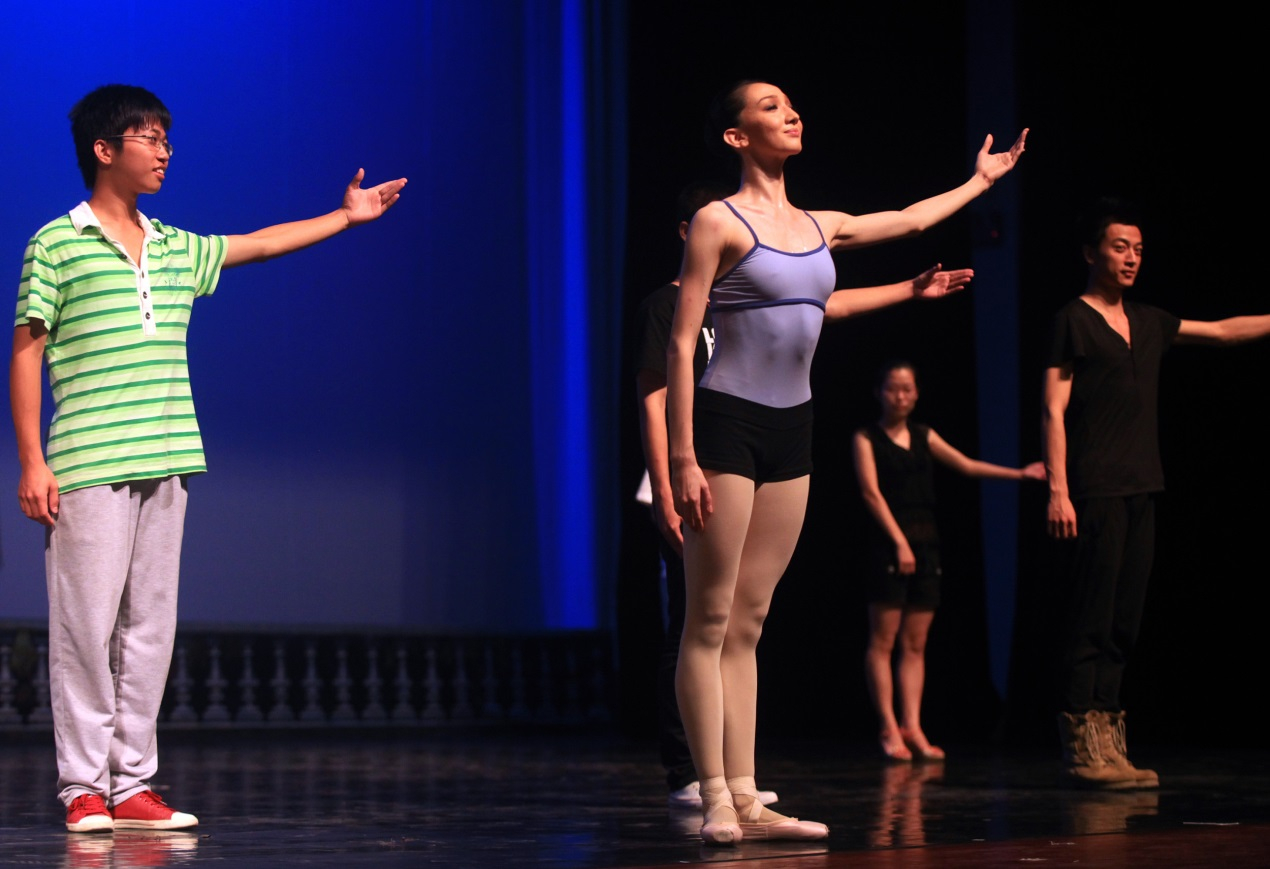Young National Ballet of China ballerina, Cao Shuci, was at the top of her field when an injury six years ago forced her to stop and to reflect on life. Now, she is making a comeback to the stage, transformed by the experience.
In the eyes of her teachers and colleagues, Cao is a very talented dancer.
At nine, she was admitted to the school affiliated to the Beijing Dance Academy. She won the first prize in the junior group segment of the National Taoli Dance Competition when she was only 14. Then, at 16, she won the junior group gold medal in the Helsinki International Ballet Competition. A year after that, she was accepted into the National Ballet of China.
"I am very fortunate. In the first year after I entered the ballet troupe, when I was 17 years old, I starred in the dance drama Romeo and Juliet. That’s when I realized that I really love dancing and ballet," Cao said.
With her solid dance skills and outstanding stage performances, Cao soon became one of the National Ballet of China's leading dancers.
Sometimes, she even danced in several shows at a time, practicing more than 12 hours a day to prepare.

Cao Shuci demonstrates curtain call posture in Fuzhou, 2011. /VCG Photo
Acknowledging that dancing at that level takes sacrifice, Cao said she has gained more than what she have given up.
"For me, the reward is worthwhile and makes me very happy. But it's really not a state of life like ordinary people have. For example, my work is always the center of my life. It is not just my job; it is my career," she said.
Just as Cao was entering the peak of her career, a serious injury in 2013 almost derailed her career. She was in "The Little Mermaid" when she sustained injuries to her spinal column.
"I distorted my entire sacrum," Cao recalled. "At one point, I even thought about giving up.”
Determined to return to her passion, Cao received rehabilitation training every day for two years. At that time, she was recommended to star in the film "Ballet in the Flames of War" to commemorate the 70th anniversary of the victory of the anti-fascist war.
"I was actually injured at the time. [But] I still felt unwilling to give up on dance. I really wanted to go back to the stage," she said. "I've invested too much to dance, my time, my energy and a lot of things in my life, so it was very difficult to leave. It's as if ballet has actually blended with my life."Cao finally returned to the stage after two years of rest. Since then, she says she has paid more attention to the inner feelings and emotions of the figures she portrays. "Because of my injury, maybe I can't reach for more difficult dance techniques, but I can express more emotions and present a richer image," Cao said.She has performed internationally many times with the National Ballet of China. The dancer said it makes her most proud to perform Chinese ballet on the global stage.

